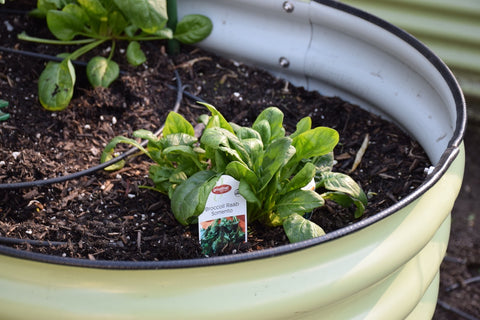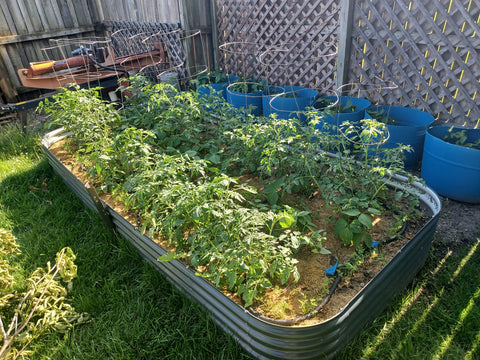Knowledge from Olle Garden Bed: Five Unique Composting Concepts For Home Gardens
A family garden is a place where many people relax, grow food, and admire flowers. However, home gardens require maintenance and fertilizer to maintain good condition. Compost is a very useful fertilizer that decomposes food and plant waste into compost, which is then scattered in raised garden beds or flower pots and troughs to cultivate healthier plants and achieve better fruit and vegetable yields. And it can also reduce the impact of waste on the environment. Here are the unique composting concepts for five family gardens.
1.Kitchen waste composting method
Put the leftover food and fruit peels from the kitchen into a compost bucket. The opening of the compost bucket can have a filter to allow air to enter and promote decomposition. During the composting process, it is recommended to place the compost bucket outdoors in the sunlight, so that the decomposing bacteria can quickly reproduce. The completed compost can be used for plants in the garden, and this composting method can effectively reduce kitchen waste.
2.Rotary composting method
The rotating compost bucket consists of a bucket and a rotator with a handle attached. Put the organic waste into a bucket, and then use a rotator to regularly mix the substances in the compost bucket. This method can accelerate the decomposition process, as mixed composting allows air and water to better enter, accelerating bacterial growth.
3.Wood chip composting method
This composting method uses a special type of sawdust as the base material. Place the wood chips at the bottom of the compost bucket, and then place the organic waste above the wood chips. Wood chips can absorb excess water and provide carbon during the decomposition process. This composting method is very suitable for gardens with a large number of leaves and dry branches.
4.Foam Composting
This composting method uses a special foam, which can quickly decompose organic waste. Put the organic waste in foam, and wait for a few weeks before composting can be used. This method can save time and effort, and reduce the odor during the composting process.
5.Insect composting method
The insect composting method utilizes the digestion ability of earthworms to decompose organic waste. Put organic waste in a worm box, and earthworms will feed and decompose substances. After digesting substances, earthworms will excrete a type of nutrient rich earthworm excrement, called earthworm fertilizer. Earthworm fertilizers are rich in nutrients such as nitrogen, phosphorus, and potassium, making them excellent organic fertilizers.
The above are the unique composting concepts of five family gardens. The use of compost can reduce the amount of garbage and provide organic fertilizer for gardens, thereby promoting plant growth and health. Different composting methods are suitable for different types of waste and gardens, and you can choose the composting method that suits your needs. At the same time, it is important to regularly check the status of the compost and adjust the humidity and mixing degree of the compost to ensure the quality and effectiveness of the compost.


